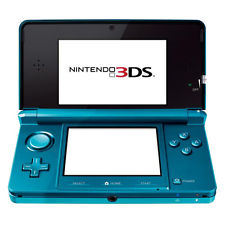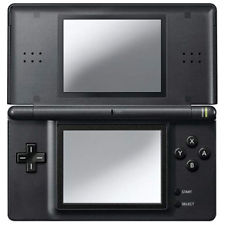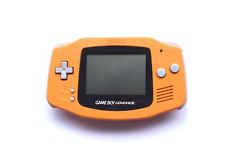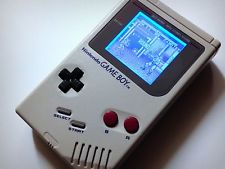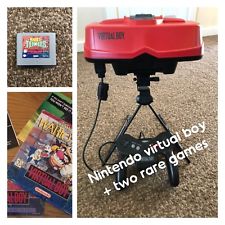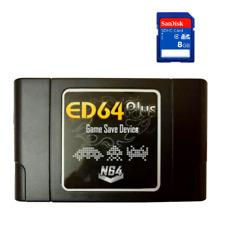|
July 24th, 2013, 00:49 Posted By: wraggster
With the 3DS as the hottest thing in gaming hardware, were declarations of the dedicated gaming portable's demise premature?
[h=3]Nintendo[/h]nintendo-europe.com
One recurring Nintendo narrative in the gaming media has been that the company will eventually be forced to throw in the towel and bring its stable of famous intellectual property to smartphones and tablets, because nobody buys dedicated gaming handhelds anymore. However, Nintendo isn't going along with that narrative.
Signs of a healthy market for the 3DS are all around. Last week, the industry-tracking NPD Group had the 3DS topping the hardware sales charts for the second straight month, with a trio of games for the handheld cracking June's top 10. Nintendo reported the highest of those, the second place Animal Crossing: New Leaf, sold more than half a million copies in its first month of US availability. Looking back slightly further, Nintendo reported seven million-selling 3DS titles in its last fiscal year, led by New Super Mario Bros. 2's ridiculously successful 6.4 million copies sold. Hardware sales are also growing, with last year's 14 million worldwide tally edged up from 13.5 million the year before. As one might expect, the impact of that enlarged customer base can be seen in the worldwide software sales, which jumped about 38 percent year-over-year to 49.6 million games.
But how sustainable is the 3DS' current trajectory? Will it continue to grow until it becomes a case study in how to salvage a sluggish hardware launch, or is the system's success a fleeting phenomenon, merely putting off the inevitable? Can Mario, Animal Crossing, and Zelda really carry a hardware maker and a business model under siege? Or is the demise of the dedicated handheld market a vastly overstated problem?
[h=2]James Brightman[/h]Nintendo deserves a lot of praise for the way it's turned the 3DS business around. And last month's impressive performance in the US, for both hardware and software, shows that Nintendo still is the master of steering the handheld market. Great software drives hardware and clearly consumers are responding to Animal Crossing. With Pokemon X and Y, Mario and Luigi: Dream Team, and The Legend of Zelda: A Link Between Two Worlds all on the horizon, I don't see 3DS interest diminishing any time soon. In fact, at $170 ($199 for the XL model), Nintendo's handheld will look like a bargain this holiday season, up against next-gen platforms like PS4 and Xbox One, at $399 and $499 respectively. Obviously the 3DS is not a direct competitor to the next-gen consoles, but consumers are still dealing with a rough economy, and parents buying Christmas presents are definitely going to favor the $170 price tag.
"My concern would be over the long-term viability of handhelds in general, as more and more developers work to offer deeper core or 'midcore' gameplay on smartphones."
James Brightman
I have no concerns about the longevity of the 3DS market. Sure, smartphones are more widely adopted across the globe than a Nintendo handheld could ever hope to be, but the average mobile game experience is still a much more shallow one than what's presented on 3DS. My concern would be over the long-term viability of handhelds in general, as more and more developers work to offer deeper core or "midcore" gameplay on smartphones. These games are either free-to-play or just a few bucks, and the premium that Nintendo commands on its software (around $40) may no longer be justifiable once the games on mobile can satisfy a deeper gaming itch. As controller APIs on iOS and Android are more readily adapted, this will enable developers to sidestep the often limiting input designs of touch screens.
The dedicated handheld market is on its last legs, but Nintendo's commitment to quality will likely keep the sector alive for longer than most of us would have guessed.
[h=2]Mike Williams[/h]I don't think Nintendo has much to worry about when it comes to the 3DS. At this point, the 3D aspect is almost a forgotten feature, but the games library remains strong. Nintendo still holds onto a powerful portfolio of recognizable characters and has made enough games over its long history to put those characters into any genre imaginable.
The system's rock-solid dominance in Japan will ensure some third-party titles will continue rolling in. Nintendo could lock down a stronger Western lineup by twisting Unity's arm on 3DS support, as a number of Kickstarted indie games are heading to Wii U because of the Unity deal.
Despite that, Nintendo will continue crushing holiday sales, especially with a new Pokemon generation on the horizon. Between Pokemon, Yoshi, Link, and Sonic, Nintendo's 2013 is looking great. Its direct competitor, the PlayStation Vita, is relying on indies, but while they're full of creativity and innovation, indie games are relatively unknown to the public at large. This doesn't even take into account 2014, which adds Super Smash Bros., a Professor Layton game, and Monster Hunter 4 to the 3DS roster.
 Animal Crossing has already sold more than 4 million copies globally. Animal Crossing has already sold more than 4 million copies globally.
Will the next Nintendo handheld fare as well? It depends on how far Apple and Google's game strategies are going to go. Even then, we're in the technology industry and things can change at the drop of hat these days. iPhone as an idea is only six years old at this point. A random guess based on the release dates of the Game Boy Advance, Nintendo DS, and Nintendo 3DS puts a successor at 2016 possibly and we have only analyst guesses about what the market will look like in 2016.
[h=2]Rachel Weber[/h]Of all the things that keep me up at night, the fate of Nintendo's handheld machines isn't one of them. This is a company that not only managed to sell a handheld system in the DS, but managed to keep selling it in Lite, DSi, and XL flavours. I'm not sure, in any sense, that the 3DS is a momentary success.
"[T]he 3DS is more than holding its own in the retail market, and I wouldn't bet even half my turnip stock on that changing anytime soon."
Rachel Weber
As far as I can see the machine's success lies in its consistency, a product that people of all gaming backgrounds can understand and access. And here's where Nintendo's handhelds have the edge on anything else: They boast a range of software that makes that entire audience feel included, software that is happily sitting on the top of the UK software chart on a regular basis, way ahead of cross-platform titles. And the places where Nintendo seems to be lagging behind, like in the online connectivity and services provided by the 3DS? That's actually a bonus to parents who imagine ill-intentioned strangers lurking behind every virtual bush.
Here in the UK the 3DS is more than holding its own in the retail market, and I wouldn't bet even half my turnip stock on that changing anytime soon.
[h=2]Dan Pearson[/h]To the question of whether Nintendo should be concerned about the performance of the 3DS there is a very clear answer: No. Although somewhat behind the trajectory of its predecessors at a similar point in their lifecycles, selling 14 million units a year is absolutely nothing to lose sleep over. The 3DS is almost certainly already a profitable enterprise overall and will continue to be so for some time yet. The XL has proven to be a successful first iteration on the base model and is unlikely to be the last.
This is indubitably what the company does best. The Wii, credited with creating an entirely new market, opening the doors of family lounges worldwide and reinvigorating the medium as a worldwide entertainment industry, was outsold by both the original DS and the combined Game Boy and Game Boy Colour. The Game Boy Advance, with 81.5 million lifetime sales, isn't far behind the Wii's 99.8 million, either. Handhelds are Nintendo's trump card, briefly challenged by the PSP's superior technical grunt but as yet unfazed by the jack-of-all-trades Vita.
But, as they say, a new challenger appears. Smartphones, a market which Nintendo is extraordinarily unlikely to ever build hardware for, are now the go-to games device for those on the move, a de-facto pocket dweller for the vast majority of the population. When you've got that sort of install base, dropping brands as globally ubiquitous as Mario or Zelda into it seems like the only logical choice. Except, then, why would you ever buy another piece of Nintendo hardware?
To let loose its brands on hardware which it doesn't make a profit on, Nintendo would lose the incredible verticality which it has spent almost its entire existence building. I'm pretty sure that the company's executives are constantly calculating the net worth of slaying the golden goose to make a fresh pillow for retirement, but don't expect that to happen any time soon.
http://www.gamesindustry.biz/article...ndheld-revival
For more information and downloads, click here!
 There are 0 comments - Join In and Discuss Here There are 0 comments - Join In and Discuss Here
|
|
 NES
NES






